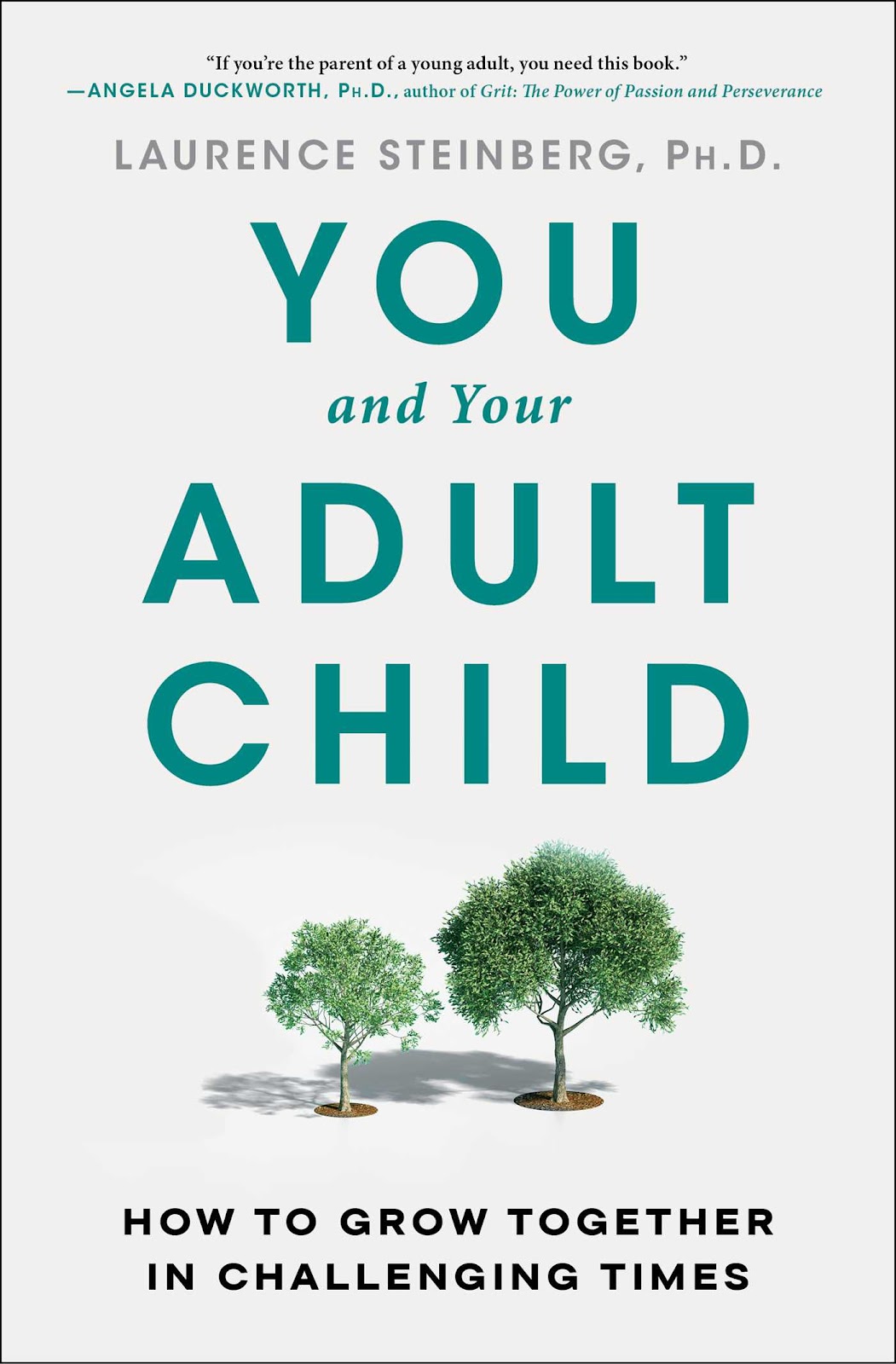This is the second book about parenting adult children. Steinberg writes from a secular, psychological perspective and brings current research and observations about culture to his analysis. It pairs well with Doing Life with Your Adult Children and covers similar ground.
He starts with some overarching principles and the culture our children are in, then moves to specific topics such as education, finances, mental health, romance and marriage, and grandchildren.
One of his main points is how much young people have changed, as has their worldview, opportunities and challenges. The transition to adulthood is later and longer today. People take more time to finish tertiary education and training, change jobs more frequently, get married later (or not at all), and have high cost of living burdens. Steinberg therefore suggests that comparing your child’s life stage to yours at a similar age (“at your age I already had a job, was married, and had kids on the way”) is neither applicable nor helpful.
Some things that stood out to me:
1. Remembering that our kids may not talk to us because they just don’t prioritise telling us.
“[One] reason for your child’s reticence is hard for parents to accept: by and large, our kids don’t think about us nearly as much as we think about them… It’s hard for parents to discover just how low they rank on their child’s priority list, at least with respect to sharing news about their life.” (15)2. The advice to move to collaborative decision-making as a family. Everyone offers suggestions and solutions, and a joint compromise and understanding are reached. This would likely be a significant change for many families where parents have decreed the final decision.
3. Discuss your personal finances with your children. He suggests the 40/70 rule - by the time they are 40 and you are 70. Parents should talk about whether they’ll have enough to retire comfortably, whether they are likely to need assistance from their children, and whether their children will inherit anything. This is wise advice, since so many families never talk about these things in detail. I’d suggest actually talking about some of these things even earlier than that, as appropriate.
4. The acknowledgement that developing a relationship with your child’s partner takes time and energy, and generally progresses through three stages:
- Honeymoon - where everyone is on their best behaviour.
- Appraisal - figuring out how it will work, trying hard, but also with heightened sensitivity to each other and any slights.
- Equilibrium - moving to a pattern that works for both parties, which could be quite close or more cordial, but hopefully workable.
He finishes with a way to assess if your children are flourishing or floundering, with the acronym EPOCH. Consider if they are: engaged (with the world, persevering (in what they are doing, or constantly switching), optimistic, connected (to others) and happy. It’s certainly not a definitive assessment, but may give parents guidance as to whether their children are just slower along the path, or are really struggling to locate any path at all.
It’s worth noting that the book is very American-centred, with research and mindsets anchored there. Managing children coming home from college breaks is less the way of life in Australia, where most urban kids live at home during university. (Although the principles still can be easily applied - perhaps even more so, when your adult uni children live with you all the time!). Even more narrow is the assumed financial perspective of parents. This is written for a middle to upper-class readership, expecting that all children will go to university and that parents will have the means to financially support them, possibly including assisting them to buy a home.
Another helpful book that prompts thinking for those parenting young adults.

















